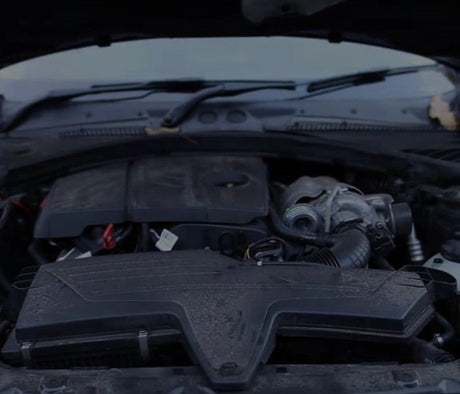Have you ever noticed stubborn tar spots on your car and wondered how to remove them without damaging the paintwork?
In this comprehensive guide, we will share with you the best techniques and tools for removing tar from your car, leaving it spotless and well-maintained.
Get ready to discover the secrets of tar removal and take control of your car's appearance!
Key Takeaways:
- Removing tar from your car doesn't have to be a daunting task.
- By following the right methods and using the proper tools, you can effectively remove tar without damaging the paintwork.
- Regular car cleaning and maintenance will help prevent future tar buildup and keep your car looking its best.
- Auto Glanz Spar-Tar is the go-to tar remover on the UK market for its effectiveness and ease of use.
Understanding the Challenge of Tar on Your Vehicle
Tar is a sticky and viscous substance that is often found on roads. It is composed of various hydrocarbons and can become attached to a car's paintwork.
Tar can theoretically cause damage to the paint and create unsightly spots if not removed in due time.
This section will explain the composition of tar and its impact on car paintwork. It will also highlight common areas where tar can be found on vehicles and discuss the level of damage it can cause.
The Composition of Tar and Its Impact on Car Paintwork
Tar is a complex mixture of hydrocarbons derived from organic materials such as wood or coal. It contains various compounds, including aromatic hydrocarbons, resins, and volatile chemicals. When tar comes into contact with a car's paintwork, it adheres firmly and forms a sticky black residue.
Over time, the chemicals in tar can react with the car's paint, leading to discolouration.
The longer tar remains on the paintwork, the greater the potential for permanent damage.
Not that you have to remove it within 24 hours - but don't let it sit for several years.
Common Tar-Affected Areas and the Level of Damage Involved
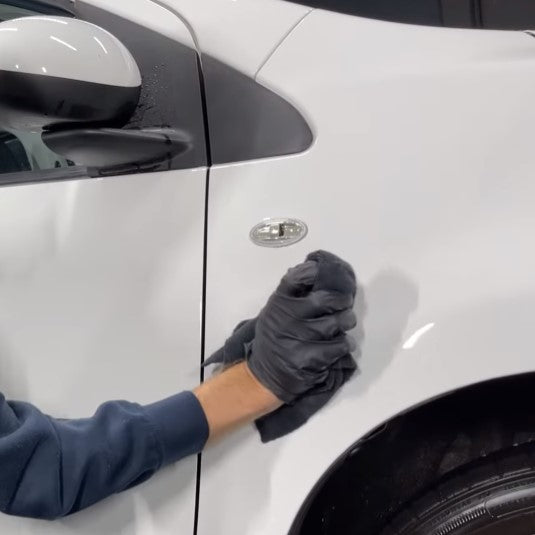
Tar can affect different areas of a vehicle, with some areas more prone to tar buildup than others. Common areas where tar can be found is typically close to the road and includes:
- Lower body panels
- Rocker panels
- Wheel arches
- Front bumper
- Side mirrors
The level of damage caused by tar depends on various factors, such as the duration of exposure, the temperature, and the thickness of the tar. In the early stages, tar may appear as dark spots or streaks on the paintwork. If left unattended, it can lead to more severe issues, including paint discolouration.
Initial Steps Before Attempting Tar Removal
Before attempting to remove tar from your car, there are some initial steps you should take to ensure a successful cleaning process. By following these steps, you can effectively remove tar and maintain your car's appearance.
Prepare the necessary tools and materials: Gather the following items before starting the tar removal process:
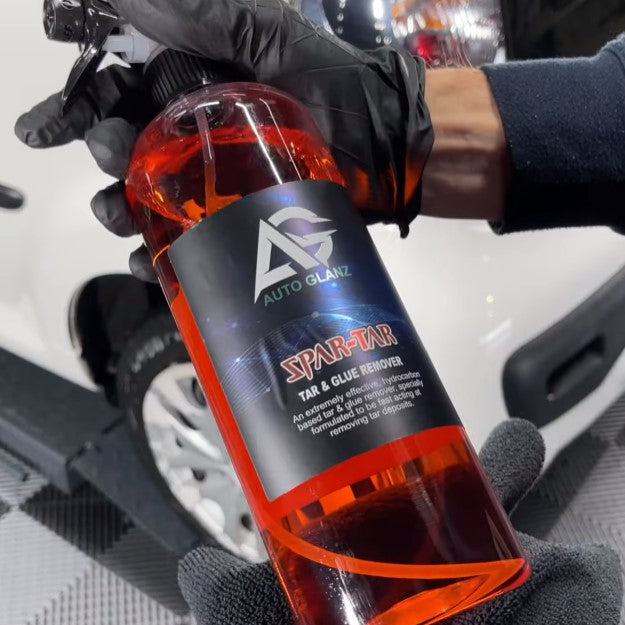
- Tar remover: Choose a high-quality tar remover specifically designed for automotive use.
- Microfibre cloth: Use a clean and soft microfiber cloth to avoid scratching the paintwork.
- Protective gloves: Wear gloves to protect your hands from the tar remover and any other chemicals.
- Water: Prepare a bucket with water and car shampoo for washing the affected area before and after the tar removal process.
- Identify the affected areas: Inspect your car for tar spots.
How You Should NOT Remove Tar
When it comes to removing tar from your car, it's important to avoid certain methods that can be ineffective or even damaging to the paintwork. In this section, we'll discuss two common mistakes to avoid: removing tar with a wash mitt and rubbing it off with a dry microfibre cloth. Let's explore why these methods are not recommended and provide alternative solutions for effective tar removal.
Don't Remove it With Your Wash Mitt
Using a wash mitt to remove tar may seem like a convenient option, but it can lead to some undesirable consequences. Tar is a sticky substance that can easily transfer onto your wash mitt, making it difficult to remove entirely. As you continue to clean your car, this tar residue can spread to other areas - and when you wash your wash mitt - the tar will be almost impossible to get out!
Furthermore, the texture of a wash mitt is typically not abrasive enough to effectively lift tar from the surface of your car. Instead of removing the tar, you may end up simply spreading it around or pushing it deeper into the paintwork, resulting in stubborn stains that are harder to remove.
Don't Rub it Off With a Dry Microfibre Cloth
A dry microfibre cloth may seem harmless, but it is not the ideal tool for removing tar from your car. Rubbing the tar with a dry cloth can cause friction on the paint surface, which may result in scratches or swirl marks. Additionally, the dry cloth is not able to effectively dissolve or dislodge the tar, making the removal process inefficient.
An effective tar removal method requires a combination of tar remover and a cloth.
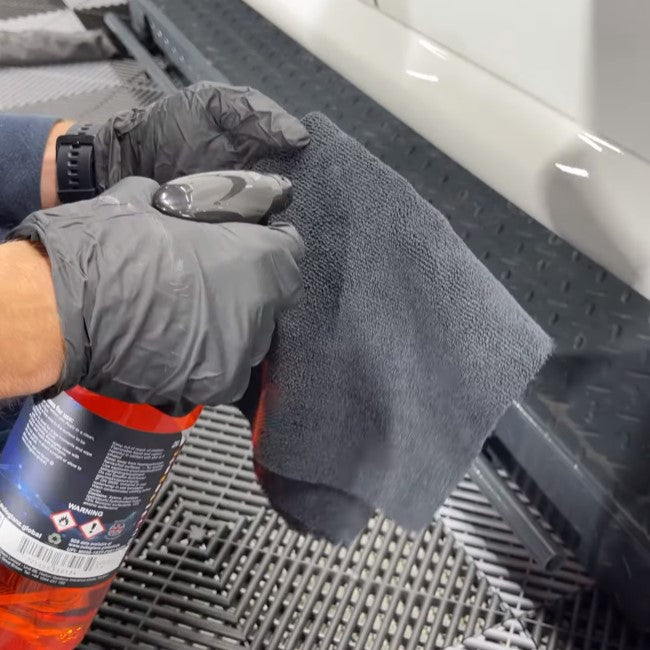
Using the wrong tools can lead to more damage and frustration. Let's explore alternative solutions for removing tar from your car.
Alternative Solutions for Effective Tar Removal
To safely and effectively remove tar from your car, consider the following alternative:
Clay Bars: Clay bars are excellent for removing contaminants from the surface of your car, including tar. They work by gently pulling the tar away from the paint, leaving behind a smooth and clean surface. Ensure to use a lubricant, such as soapy water or a clay bar lubricant, to minimize any friction or scratching. But beware: Using a clay bar typically results in micro scratching your car.
READ ALSO: How to use a clay bar
Why Auto Glanz Spar-Tar is the Best Tar Remover on the UK Market
When it comes to effectively removing tar from your car, Auto Glanz Spar-Tar stands out as the best product available in the UK market.
Here's why Spar-Tar should be your top pick to get tar off your car:
- Powerful Tar Removal: Spar-Tar is specifically formulated to dissolve and lift even the toughest tar spots and stains from your car's paintwork. Its advanced chemical composition targets tar at its core, ensuring thorough and efficient removal.
- Gentle on Paintwork: While Spar-Tar is robust in tar removal, it is also gentle on your car's paintwork. Its specially designed formula minimizes the risk of any damage or abrasions, ensuring that your car's exterior remains pristine.
- Easy Application: Applying Spar-Tar is a breeze with our step-by-step guide. Follow these instructions to achieve optimal results:
Step-By-Step Guide on Applying Tar Remover
- Thoroughly clean the affected area of your car, ensuring that it is free from any loose dirt or debris.
- Shake the Spar-Tar bottle well to ensure proper mixing of the formula.
- Apply a small amount of Spar-Tar directly onto a clean, soft microfiber cloth.
- Gently rub the cloth or pad over the tar-affected area, applying light pressure.
- Allow Spar-Tar to dwell on the tar for a few minutes, allowing it to penetrate and break down the residue (for bigger tar spots).
- Use the microfibre cloth again and wipe away the dissolved tar and any residue.
- Rinse the treated area with clean water / car shampoo and dry it thoroughly with a microfibre towel to avoid limescale spots.
- For persistent tar stains, repeat the process as necessary until the area is completely clean.
By following this step-by-step guide, you can effectively remove tar from your car using Auto Glanz Spar-Tar.
Remember: Spar-Tar should NOT be used in direct sunlight or on hot surfaces. Do not expose trim / rubber or plastic to Spar-Tar for extended periods of time.
Tips for Protecting Your Paintwork When Using Chemical Removers
While Spar-Tar is a safe and effective tar remover, it's important to take precautions to protect your car's paintwork when using any chemical removers. Here are some helpful tips:
- Use the tar remover sparingly, applying only as much as necessary to treat the tar spots. Avoid excessive use, as it may lead to unnecessary contact and potential damage to the paintwork.
- Work in small sections at a time to prevent the tar remover from drying out or sitting on the surface for an extended period.
- After applying the tar remover and wiping away the dissolved tar, rinse the treated area with clean water and dry it thoroughly to remove any residue.
- Consider applying a protective wax or sealant to the treated area once it is clean and dry. This will help to further safeguard your car's paintwork from future tar buildup and other contaminants.
By following these tips, you can effectively remove tar from your car while ensuring the long-term protection of your paintwork.
Preventing Future Tar Buildup
- Regularly wash your car using a mild car shampoo to remove dirt and debris that can attract tar.
- Apply a protective wax or sealant to your car's paintwork. This will create a barrier and make it easier to remove tar in the future.
- Consider using mud flaps or splash guards to protect the lower parts of your vehicle from road tar.
- Avoid driving over freshly paved roads or areas where construction work is being carried out, as these tend to have more tar on the surface.
- If you notice any tar spots on your car, remove them promptly using the tar removal process mentioned above.
Frequently Asked Questions About Tar Removal
What is tar and how does it affect my car's paintwork?
Tar is a sticky and viscous substance that can be found on roads. It can become attached to your car's paintwork, causing damage and creating unsightly spots.
Where are common areas on my car where I may find tar?
Tar can be found on various parts of your car, including the paint and lower bodywork and panels.
How can I remove tar from my car without damaging the paintwork?
There are several effective methods that you can use to remove tar from your car without damaging the paintwork. We recommend Spar-Tar, an effective tar remover.
What should I do before attempting to remove tar from my car?
Before removing tar from your car, it is important to prepare the necessary tools and materials, identify the affected areas, and protect other parts of the car that may be sensitive to the cleaning products you'll be using.
What are some mistakes to avoid when removing tar?
Two common mistakes to avoid when removing tar are using a wash mitt and rubbing it off with a dry microfiber cloth. These methods can be ineffective and may damage the paintwork.
What is the best tar remover product on the UK market?
Auto Glanz Spar-Tar is our best tar remover product for consumers on the UK market. It is highly effective in removing tar and is safe for use on car paintwork.
How do I apply a tar remover product to my car?
To apply a tar remover product, spray it onto the tar spots, let it sit for a short while, and then gently wipe it away with a clean cloth.
How can I protect my car's paintwork when using a chemical tar remover?
To protect your car's paintwork when using a chemical tar remover, you can apply a layer of wax or sealant after removing the tar. This will provide a protective barrier against future tar buildup.
How can I prevent future tar build up on my car?
To prevent future tar build up, you can regularly wash your car, apply a layer of wax or sealant, and avoid driving on freshly paved roads or areas with a lot of tar splatter.

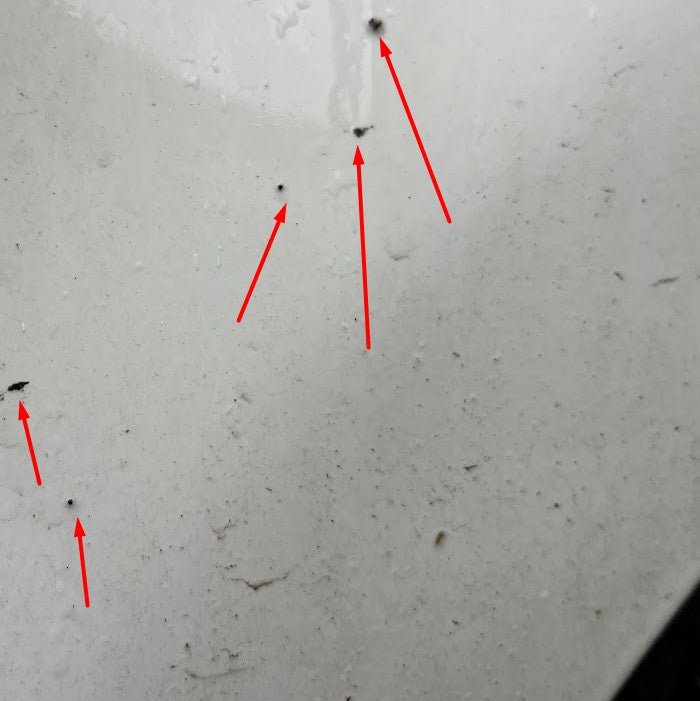

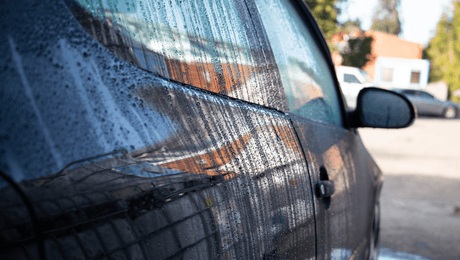
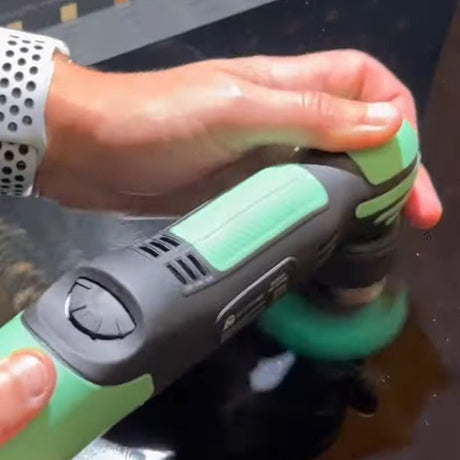
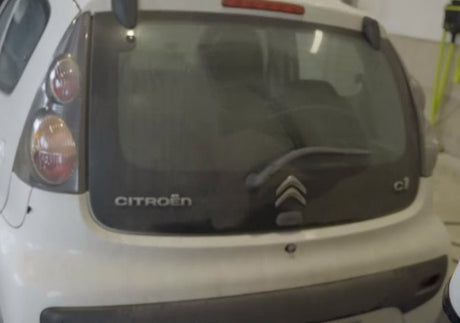
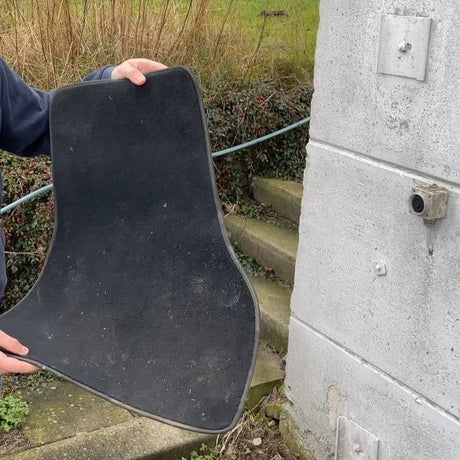
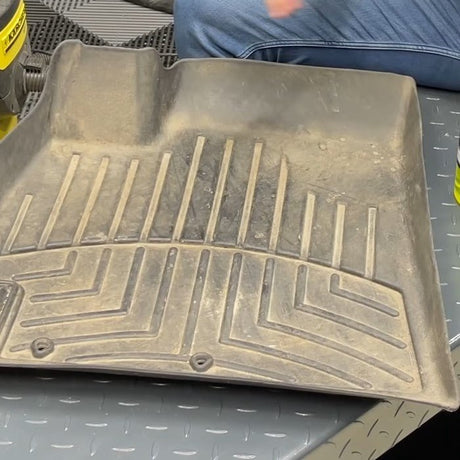
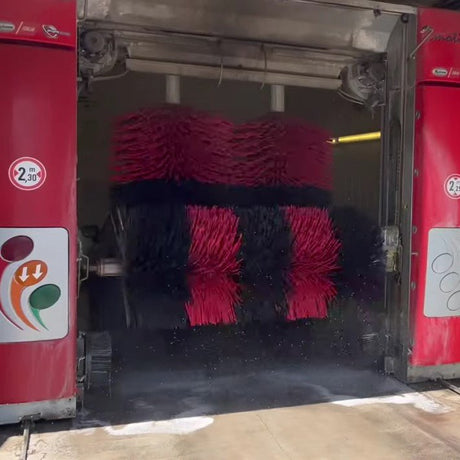
![Best Ice Scraper in the UK [2024 GUIDE] - AutoGlanz AG Car Care](http://auto-glanz.co.uk/cdn/shop/articles/best-ice-scraper-in-the-uk-2024-guide-742556.jpg?v=1709624007&width=460)
